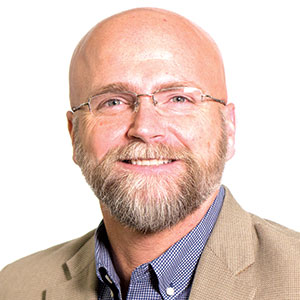The leadership journeys of most professionals start with a number of distinguishing individual wins as producers, followed by a couple of stops in entry-level management positions, followed by the first (of potentially many) big jumps into higher levels of responsibility. Those big jumps are interesting because they are the most perilous, yet developmentally significant times in any leader’s journey. Those who survive gain a transferable leadership perspective governed by principles that will serve their interests in any role.
Early in our careers, we swim in the shallow water. Waves come in and knock us off our feet at times, but we can easily stand back up. We jump around safely, make friends in the shallow water and cast our gaze into deeper water from a vantage point of ease. There are lots of jobs in the shallow end. But those called into the deep eventually swim out to where they can’t touch, never knowing the drop-off is far from gradual.
The bottom is much deeper than they know. When they get pulled under for the first time, it is a long and terrifying submersion. For most, they spent enough time in the shallow water to have started to learn how to hold their breath. For all, it’s shocking to see there isn’t a bottom to be found. From here on, you have to learn to tread water.
In big jobs, the water is always deeper than you think. There are infinite things you are responsible for that you don’t have the time to know, to check out, to ensure are done right. Trying to do all of those things can be a reason you get pulled under. Conversely, ignoring them can trigger the same. Eventually, you come to see what can pull you under and, more importantly, you learn to hold your breath.
The phrase, “We tried that before and it didn’t work,” gets near universal lampooning, which is an ironic castigation of the learning process. If we thought it was enlightened to stick our hands on a hot iron to prove we were innovative, we’d never stop getting burned. Each of us has to learn what does and does not work for us in leadership. By the end of your third year in a big job, you should begin to discern those things. Reflect on that.
What matters most is learning to hold your breath. As cautious or even sharp as you might be, situations inevitably unfold in leadership jobs that will pull you under. Little by little, you come to know how deep the water is. You’ve been down before and survived. You know not to panic when a wave crashes over, which is one of the reasons you can hold your breath for so much longer than you could at the start. Because of these skills, you can venture out as far as you like, into any job. You know how to swim.
Daniel Flowers is President and CEO of Akron-Canton Regional Foodbank

